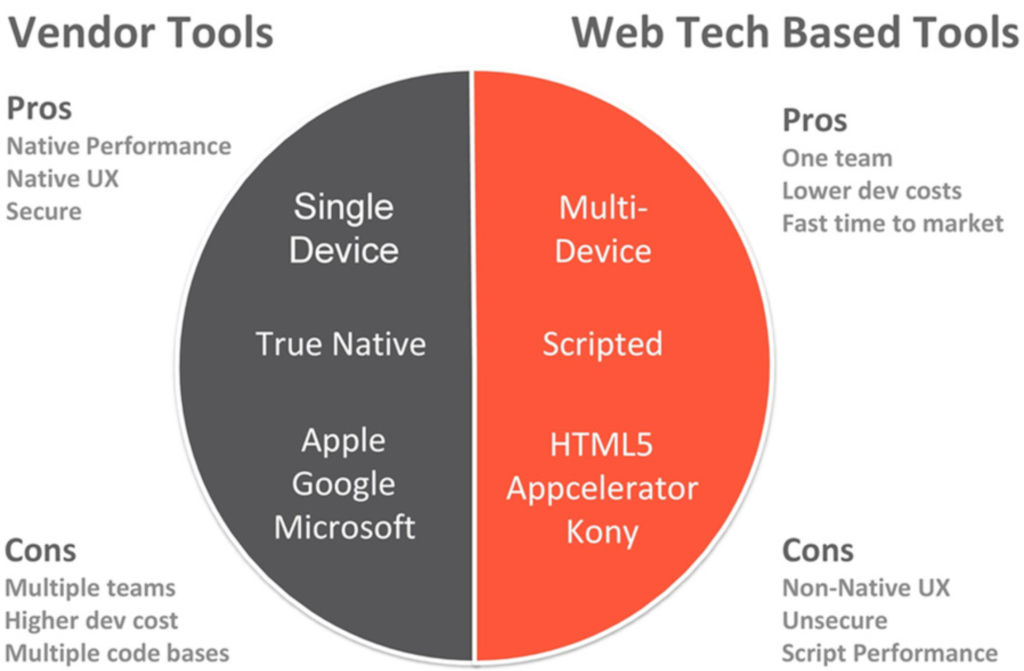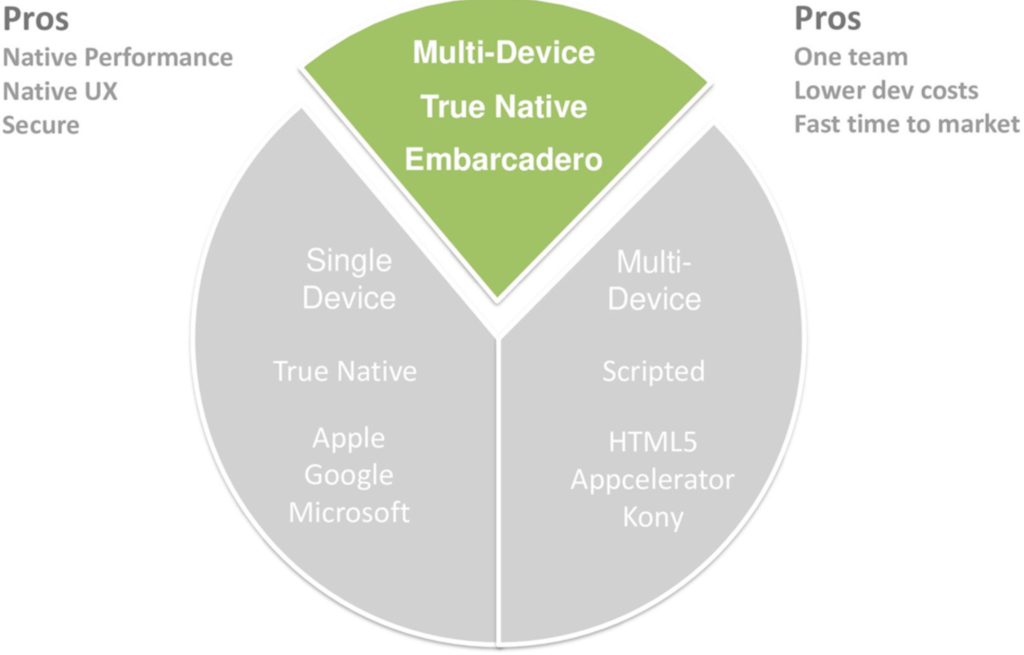I recently posted on my Embarcadero Blog about the 3 main types of mobile applications that developers write. Native apps, web-based mobile apps, and hybrid apps, and highlighted that you can achieve the benefits of both Hybrid development with a single code base to manage, test, and develop, with the SPEED AND SECURITY of TRUE native compilation. (Note, Not all development toolchains that claim to be native, compile everything!- Delphi does!)
Definitely worth sharing with those you know looking to choose which platform they want for their next development project.
Each approach has its Pro’s and Con’s, and with a view of how operating systems have developed over time, its easy to see how web-based technologies (web-native, and hybrid) have had a positive role to play in the adoption of multiple platforms by targeting the one thing each platform provides, a browser-based on HTML and open standard.
With OS vendors only interested in offering the best speed, performance, and usability via their own tools to aid adoption, and as OS’s evolve in different ways, (especially early in their development cycle) is understandable that choosing web can seem a good option to gain market entry with a broad access.
That said, we are now at a point where the market has matured. We have Apple and Google as the two key players covering over 99% of the market, pushing developers towards needing to maintain two codebases for the best user experience on mobile. On the other side, a number of web-based frameworks offering semi-native apps with a single code base.

What I love about Delphi, is that there is a unique offering enabling developers to benefit from a single code base that address both mobile platforms, with the speed, security and usability of Vender tools, PLUS the lower development cost, and low code options promoted by web/scripted frameworks.
FireMonkey is now 9 years old, and benefits from the best available compilers on the market, targeting the latest technologies (like Metal on iOS for blazing-fast rendering) and offers a choice of true native controls or platform styles controls at runtime.

Read more on my Embarcadero blog – What are the best options for mobile app development?
The post Native v Hybrid v WebApp appeared first on Stephen Ball's Technical Blog.